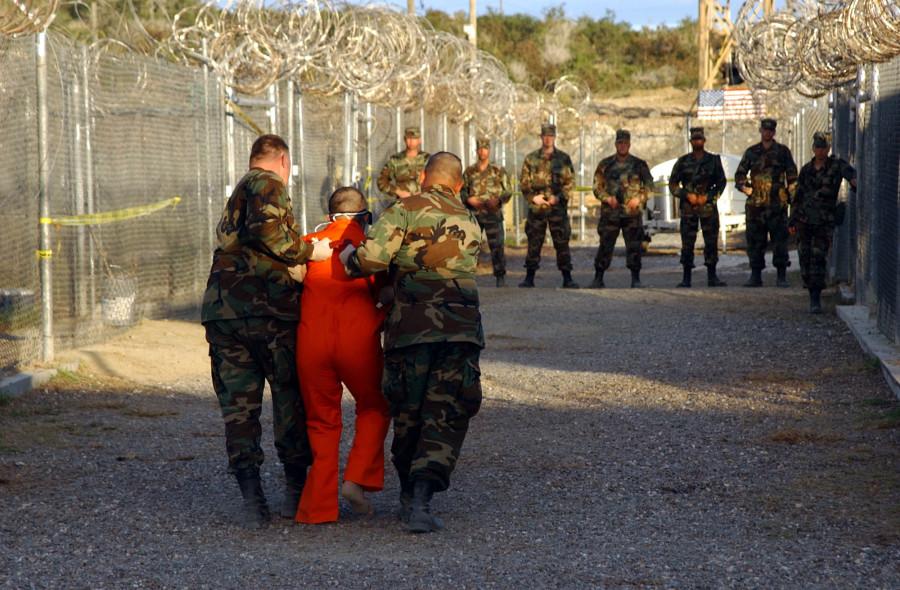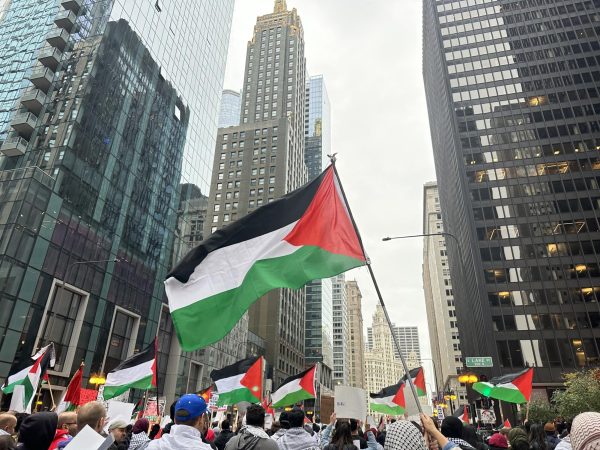Are You Okay With Guantanamo Bay?
Guantanamo Bay has been a source of controversy since its opening.
Frenzy. Panic. Terror. The days and months after 9/11 elicited an unprecedented outpouring of emotion and turmoil. America was thrust into hysteria, and in the midst of it–with the knowledge and understanding of few–bold new measures were enacted to combat terrorism. Included among these was George W. Bush’s executive authorization of the use of Guantanamo Bay in Cuba as a prison for the most dangerous detainees captured in the new War on Terror. According to Bush’s Secretary of State, Donald Rumsfeld, the site would be an optimal location for interrogation of suspected terrorists.
CON:
Fast forward to today. More than 14 years after the terrorist attacks, four years after America’s official withdrawal from Iraq, and on the verge of full troop disengagement from Afghanistan, there are still prisoners languishing in Guantanamo Bay, some of whom have been there since the prison’s opening in 2002, almost none of whom have ever been charged with a crime. And, not only have these detainees sat in Cuba with their right to due process blatantly violated but with their fundamental human rights disregarded as well. Apparently, neither the U.S. Constitution nor the Geneva Convention matter at Gitmo, and although the Supreme Court has ruled since 2004 that both of these documents have jurisdiction there, abuses still continue.
Only two months ago, a special Senate committee released a 525-page report divulging the CIA’s extensive use of “enhanced interrogation techniques”–widely known as a euphemism for torture–on prisoners at Guantanamo and at CIA “black sites” (secret prisons) around the world. What was most appalling about the Senate’s findings was perhaps not even the CIA’s unrestrained use of brutal interrogation methods; really, these were apparent all along, just never made official. The committee’s most striking conclusion was that these techniques didn’t even work. No information was obtained regarding impending attacks, and according to the December report, any intelligence that was acquired could have been procured without torture.
This begs the question then: Why is the U.S. government keeping open the most notorious place for torture of individuals who have never even been charged? Why preserve a prison that, in President Obama’s own words, “the world condemns and terrorists use to recruit?” What’s more, why are there still prisoners there?
The answer is Congress, both houses of which are dominated by those who value supposed patriotism over personal liberty, monopolized by short-sighted politicians who preach to their constituencies the ever-imminent threat of a new terrorist attack and so keep Gitmo open. As always, Congress and the executive branch have reached a stalemate. They can’t even agree on an obvious, popular, and simple solution: close Guantanamo Bay.
-Conor Kennedy
PRO:
Guantanamo Bay, despite its unfortunate track record and great controversy, should remain open. Before I go on, it should be stated that in no way, shape, or form am I condoning any actions that have taken place in Guantanamo that have violated human rights in any way. These actions should cease and be condemned regardless of the circumstances.
But, as a matter of national security, GTMO (Guantanamo Bay Naval Base) should remain nonetheless. It is no secret that the biggest current threat to Western society is terrorism. It has caused countless innocent deaths and fear all over the world and should not be taken lightly.
Throughout our nation’s history, the protection of our citizens and armed forces has been a critical issue. In 1917, the U.S. passed the Espionage Act, which restricted freedom of speech to keep our citizens and soldiers safe. The act was reinforced in the Supreme Court case Schenck v. United States, and much of the act remains in effect today.
Seeing as the U.S. government went as far to infringe upon to the First Amendment rights of its own citizens, it only makes sense that proportional actions are taken against threats overseas and towards GTMO. GTMO is just an example of the U.S. treating terrorism in a necessary manner. The fear spread by terrorism is one that has deeply pierced the heart of many Americans, and it is only pushed deeper by a fear-mongering media.
Bringing these terrorists, some of the most dangerous people apprehended by the U.S. government, onto U.S. soil would simply not go over well. Closing and transferring the prison to the U.S. also runs into logistical problems and the tidal wave of bureaucracy that is the U.S. government. The closing of GTMO is too financially, politically, and psychologically difficult.
-Connor Polk













